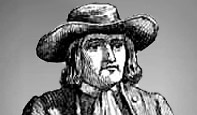The greatest miracle of all was Christ’s resurrection. The greatest miracle you could reasonably expect nowadays is to recreate between humans a replica of the same relationship or indwelling that is supposed to exist between God and the soul. Indeed what better way to honour the Divine indwelling, than to enter into the creativeness of God, so as to recreate a likeness of itself? What better way of reconciliation with one’s country’s enemies, than imitating King Alfred’s moment of sublime glory?
Such an act is “one which transcends Nature”, as normally understood; and this is a better description than “miracle” for such acts. It is better, because it accommodates the scientific theory of the present day. Sixty years ago, Sir Dampier Whetham in his History of Science, said that the old idea that science dealt with inorganic matter in a materialistic way had gone: matter is not solid, it is largely space, and what there is of it is largely energy states anyway. So in pure science we are left with form, waves in the quantum theory, and curvature in relativity.
Whilst primarily science measures sense perceptions and the relationships between them, it is also concerned with persisting realities. And it is as well to remember that the Laws of Nature are mathematical expressions of the experimenter’s experience. So they are interpretations of experience: and therefore describe the relationships between the concepts scientists have in their minds, rather than between the realities of Nature itself. In contrast the realities of Nature are discrete organisms: first man, then animals and plants, down to the humble amoeba. And where there is thought, as in man and animals, then of course thought influences matter; it is a characteristic of thought to do so. We all know that an act of will gets the limbs into action. We may not understand why; but it does. Moreover where there is thought, it permeates to the extremities of the creature in which it takes place. We all know a surgeon’s skill is in his fingers, as well as in his mind. A rock-climber’s skill is in the coordination of his whole body, and in his mind; only when you get hands and feet on the rock, do you know if a pitch will go. It is a characteristic of thought to influence matter. One can call this one of the Laws of the Spiritual World. Of course there are limits. Only in fairy-tales can we do whatever we like. Nevertheless science leaves the door wide open for acts of will and faith to assert themselves within the organism of which they are a part, and within the rules that creation allows.
Once this is grasped, human nature is going to probe to see what those limits are. As the New York judge, Mr. Justice Cardoso, said, “We are not so provincial as to say you are wrong, because we do not do it like that at home!” It is a very unimaginative man who considers himself bound forever by the common experience round about him. Plato, in his vivid imagery, likened him to a man imprisoned in a shadowy cave by his own inhibitions, who dared not go out into the glorious sunshine outside, simply because it was unfamiliar. Similarly, but using a different metaphor, Teilhard de Chardin wrote that the renewal of the cosmic outlook which characterises the modern mind compels all ancient religions to adjust to the immensities of space-time, or perish. I imagine that most religions are trying to adjust, at least by accepting that the Divine Creator, the Almighty, is the God of all, not simply of the favoured few. But is it possible to defy modern thought, refuse to adjust, and remain out of step with both science and conduct in the community? Yes, the fundamentalists of any religion do it; and they do it by the simple expedient of not thinking. But for those of us who are capable of thought, there is no harm in asking if acts “which transcend Nature” as normally experienced are allowed?
No physician can heal himself; so healing or Salvation must come from a spiritual intercourse between people. And what better basis for religion than to have a living relationship with the Divine unfathomable mystery of the Creator, complemented by a similar relationship with man; or woman?
